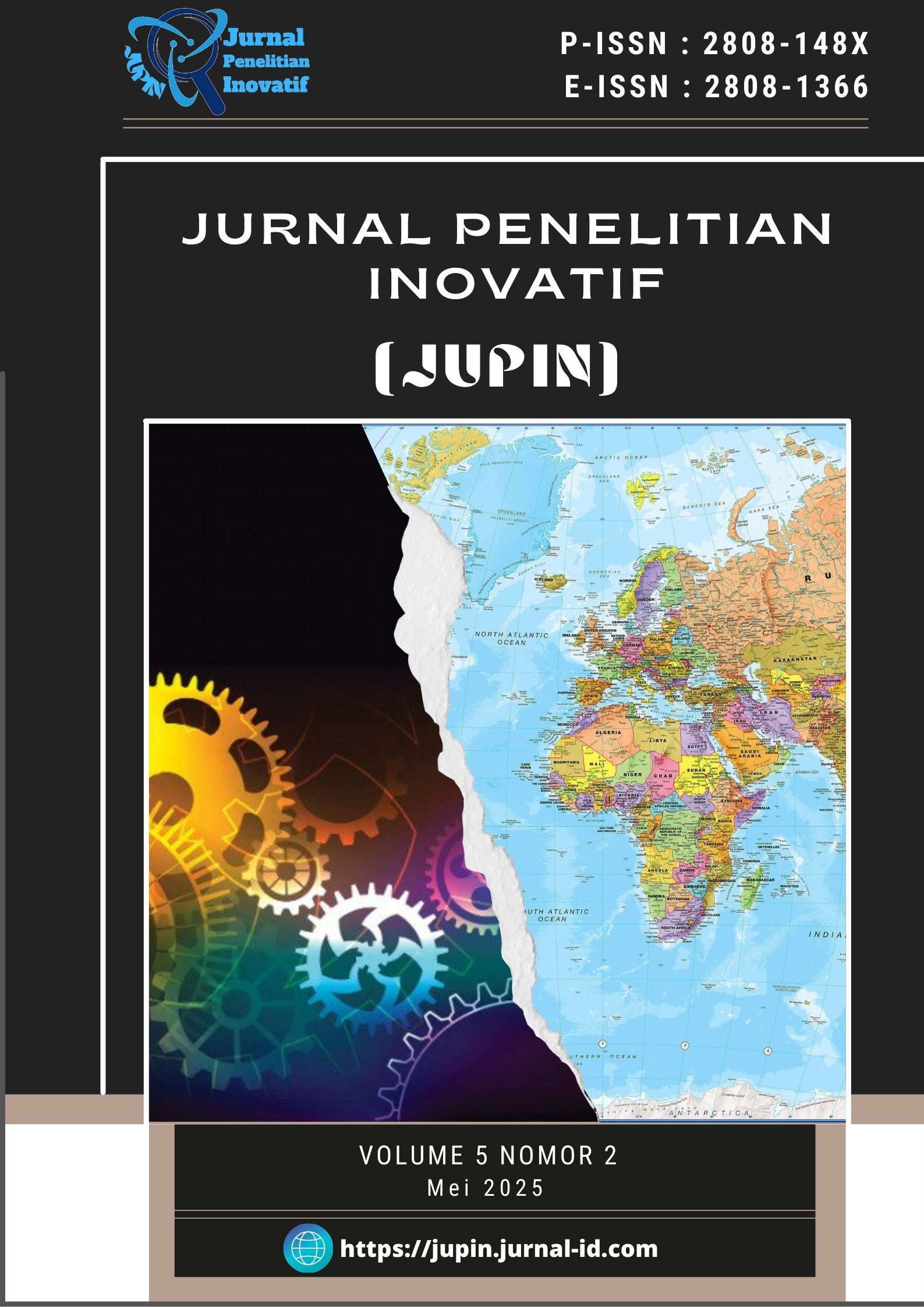Production of Sports Demonstration Videos in English As A Project-Based Learning Product
DOI:
https://doi.org/10.54082/jupin.1371Kata Kunci:
Demonstration Video, English Communication, Project Based Learning, Sports EducationAbstrak
This study aims to develop a project-based learning (PBL) model for English instruction in the Physical Education, Health, and Recreation Study Program, focusing on the production of sports demonstration videos in English. The urgency of this research lies in the need for innovative teaching methods that not only enhance communication skills in English but also develop students' ability to present sports materials professionally. Project-Based Learning was chosen as it effectively integrates cognitive aspects, practical skills, and technology into a holistic approach. This study employs a qualitative research method, where students participate in a series of processes, including planning, production, and video presentation. The findings indicate that PBL significantly improves students' English proficiency, particularly in technical sports communication, while also fostering their creativity in utilizing digital technology. Moreover, the use of video editing software contributes to enhancing the quality of sports material presentations. However, challenges such as time constraints and students' technical skills in video production remain obstacles that need to be addressed. This research contributes to the development of a learning model that integrates sports, language, and technology, while also opening opportunities for further research in practice-based language instruction across various disciplines.
Referensi
Dewey, J., & Rosenfeld, J. (2020). The role of experience in learning. Journal of Experiential Education, 43(4), 315–329.
Fahmi, F., & Anas, N. (2021). Project-based learning to develop practical and collaborative skills of students. Jurnal Pendidikan dan Pengajaran, 18(2), 105–118. https://doi.org/10.12345/jpp.v18i2.67890
Goodianti, Y. L., & Fitrianingsih, I. (2023). Project-based learning to improve English for specific purposes learning outcomes: An action research. Ideguru: Journal of Scientific Works of Teachers, 8(2), 288-296.
Harmer, J. (2020). Teaching with video: A practical approach for the modern classroom. International Journal of English Teaching, 9(3), 34–49.
Hidayanti, A. A., Mandalika, E. N. D., Setiawan, R. N. S., Septiadi, D., Nursan, M., Fadli, W., & Zulkarnaen. (2022). Socialization of making simple financial reports and marketing craft products in Dasan Tapen Village, Gerung Subdistrict, West Lombok. Jurnal Aplikasi dan Inovasi Iptek, 4(1), 34-39. https://doi.org/10.52232/jasintek.v4i1.97
Jonassen, D. H. (2021). Learning to solve problems with technology. Journal of Educational Computing Research, 59(2), 83–96.
Kolb, D. A. (2020). Experiential learning theory: A dynamic, holistic approach to management learning, education, and development. Journal of Management Education, 44(3), 252–272.
Larmer, J., & Mergendoller, J. (2021). Gold standard PBL: Essential project design elements. Journal of PBL Research, 5(2), 12–19.
Larmer, J., Mergendoller, J., & Boss, S. (2022). The role of assessment in project-based learning: A guide for educators. Assessment and Evaluation in Education, 11(4), 23–37.
Miles, M. B., & Huberman, A. M. (2020). Qualitative data analysis: Updated methods and techniques for the digital era. Qualitative Research Journal, 12(1), 23–45.
Moreno, R., & Mayer, R. E. (2020). Engaging students in active learning with multimedia. Contemporary Educational Psychology, 61, 101857.
Mutiaraningrum, I., Hartono, R., & Fitriati, S. W. (2022). Technology-assisted project-based language learning. Proceedings of the National Postgraduate Seminar.
Piaget, J., & Inhelder, B. (2020). Cognitive development in the modern era: Revisiting the sensorimotor stage. Developmental Psychology Review, 40(3), 265–280.
Prakasita, F. P., Prabowo, D. P., & Setiawan, A. (2024). Logo design as a visual identity for modern learning approaches. Jurnal Ilmu Komputer dan Desain Komunikasi Visual, 9(2), 112–125. https://doi.org/10.55732/jikdiskomvis.v9i2.1462
Prasetyo, D., & Prabowo, E. (2020). The influence of technology on student skills in education. Jurnal Pendidikan Teknologi, 15(3), 45–56. https://doi.org/10.12345/jpt.v15i3.12345
Prensky, M. (2021). Digital natives in education: Practical strategies for engagement. Educational Technology Journal, 18(3), 34–49.
Richards, J. C. (2021). Curriculum development in language teaching: Innovations and practices. Language Teaching Research, 25(2), 147–162.
Sinap, F., Susilawati, E., & Rosnija, E. (2022). Motivation toward English language performance of a non-English major student. Journal of English Education Program, 2(2), 1-8. https://doi.org/10.26418/jeep.v2i2.46007
Thomas, J. W. (2022). Revisiting project-based learning: Emerging trends and practices. Educational Leadership Review, 13(2), 58–73.
Yuvita, Y., Hartono, R., Fitriati, S. W., & Saleh, M. (2023). Project-based learning model trends in English language learning (Systematic Literature Review). Proceedings of the National Postgraduate Seminar.
Zein, A. (2023). Analysis of digital marketing strategies via online media. Engineering and Technology International Journal (EATIJ), 5(2), 57-63. https://doi.org/10.51454/eatij.v5i02.419
Unduhan
Diterbitkan
Cara Mengutip
Terbitan
Bagian
Lisensi
Hak Cipta (c) 2025 Rimma Sianipar, Andromeda Valentino Sinaga

Artikel ini berlisensi Creative Commons Attribution 4.0 International License.


















